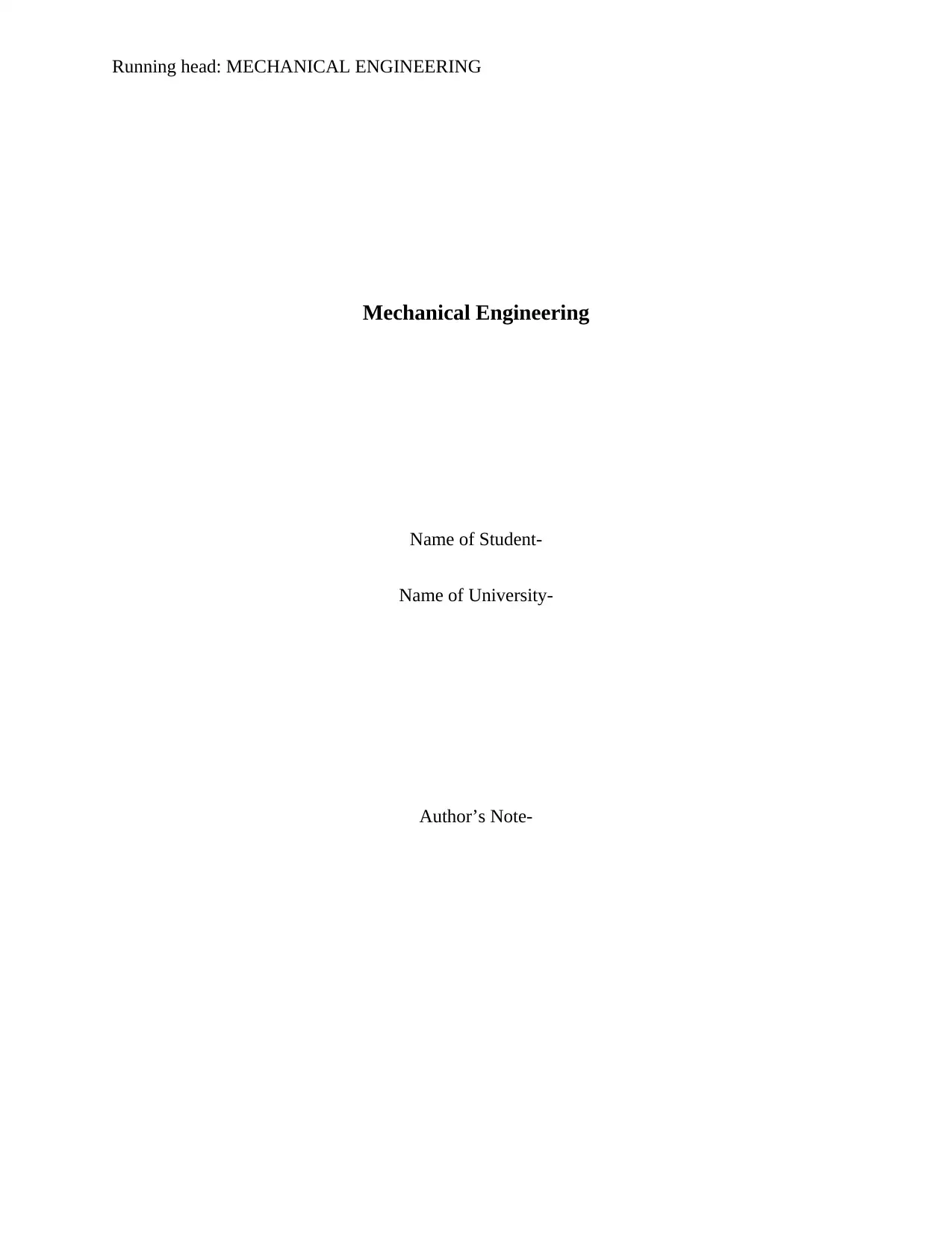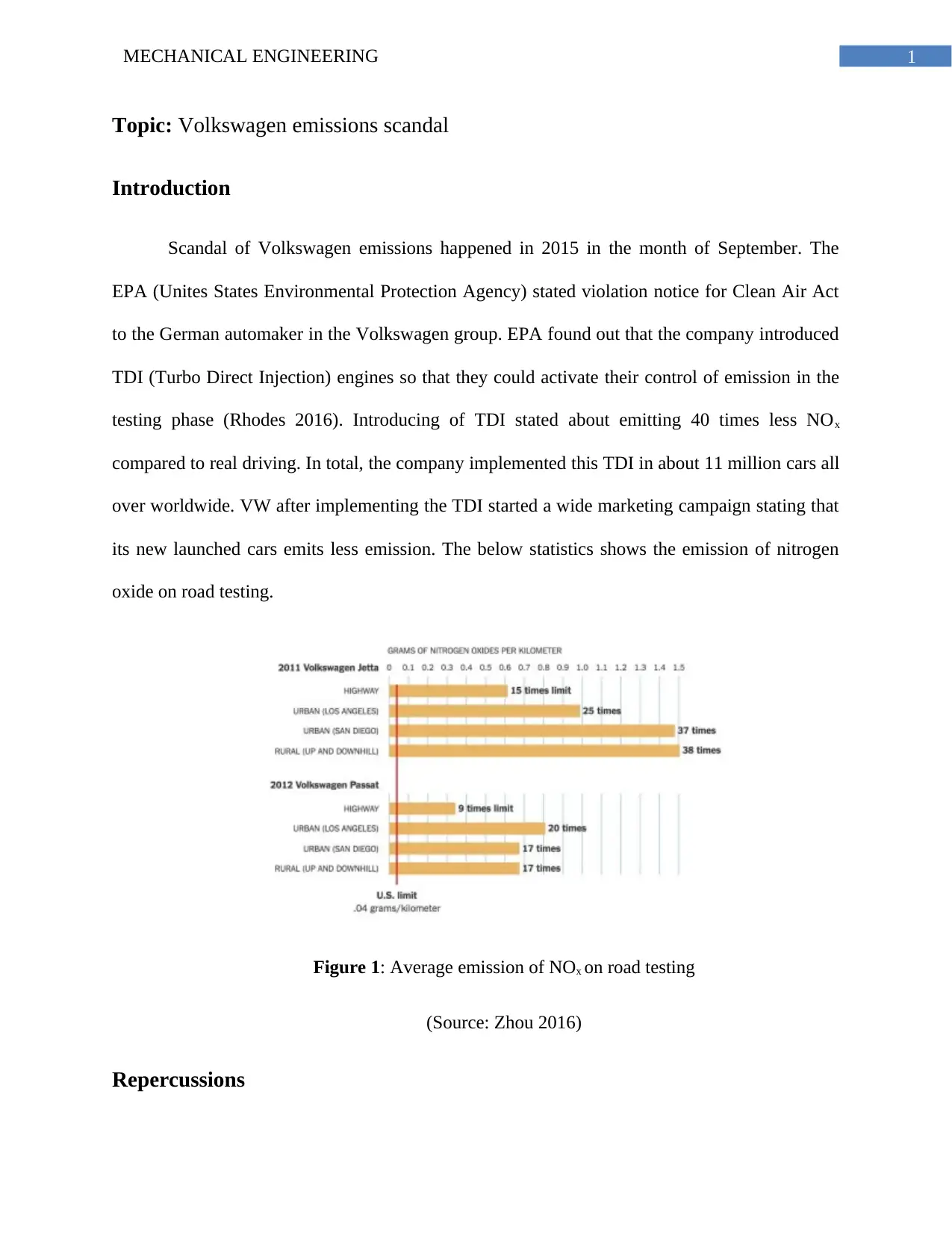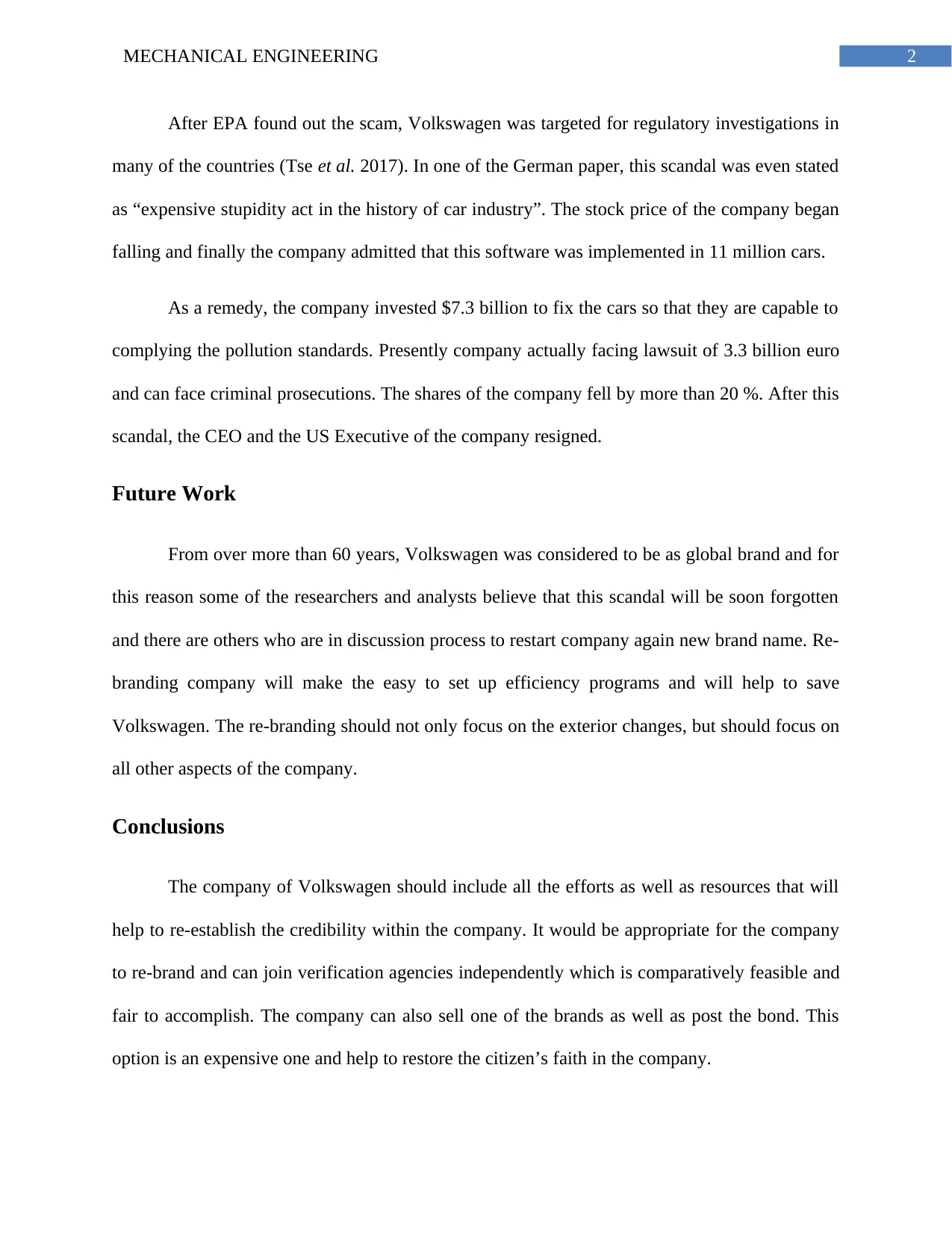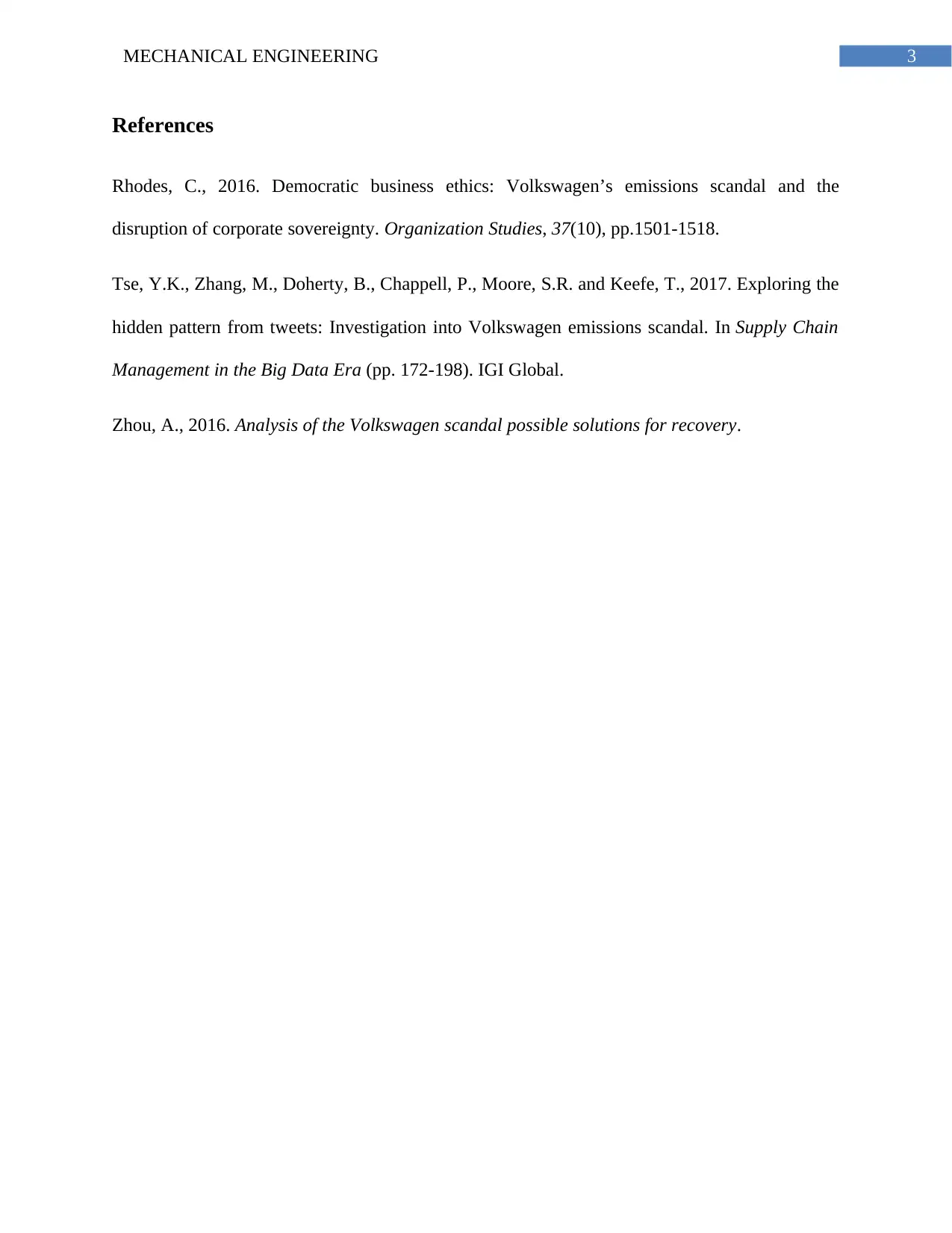Analysis of the Volkswagen Emissions Scandal in Mechanical Engineering
VerifiedAdded on 2022/11/07
|4
|605
|413
Report
AI Summary
This report examines the Volkswagen emissions scandal, which began in 2015 when the EPA discovered that the company had been using "defeat devices" in its TDI (Turbo Direct Injection) engines to cheat on emissions tests. The scandal involved approximately 11 million vehicles worldwide. The report details the implementation of these devices, the resulting increase in NOx emissions, and the subsequent regulatory investigations and financial repercussions. The analysis includes the impact on the company's stock price, the resignation of key executives, and the company's efforts to fix the affected vehicles. Furthermore, the report explores potential future actions for Volkswagen, including re-branding and restructuring to regain public trust. The report concludes by emphasizing the importance of ethical practices and independent verification within the automotive industry and highlights the need for the company to rebuild its credibility through various measures, including potentially selling off assets or issuing bonds to restore consumer confidence.
1 out of 4










![[object Object]](/_next/static/media/star-bottom.7253800d.svg)